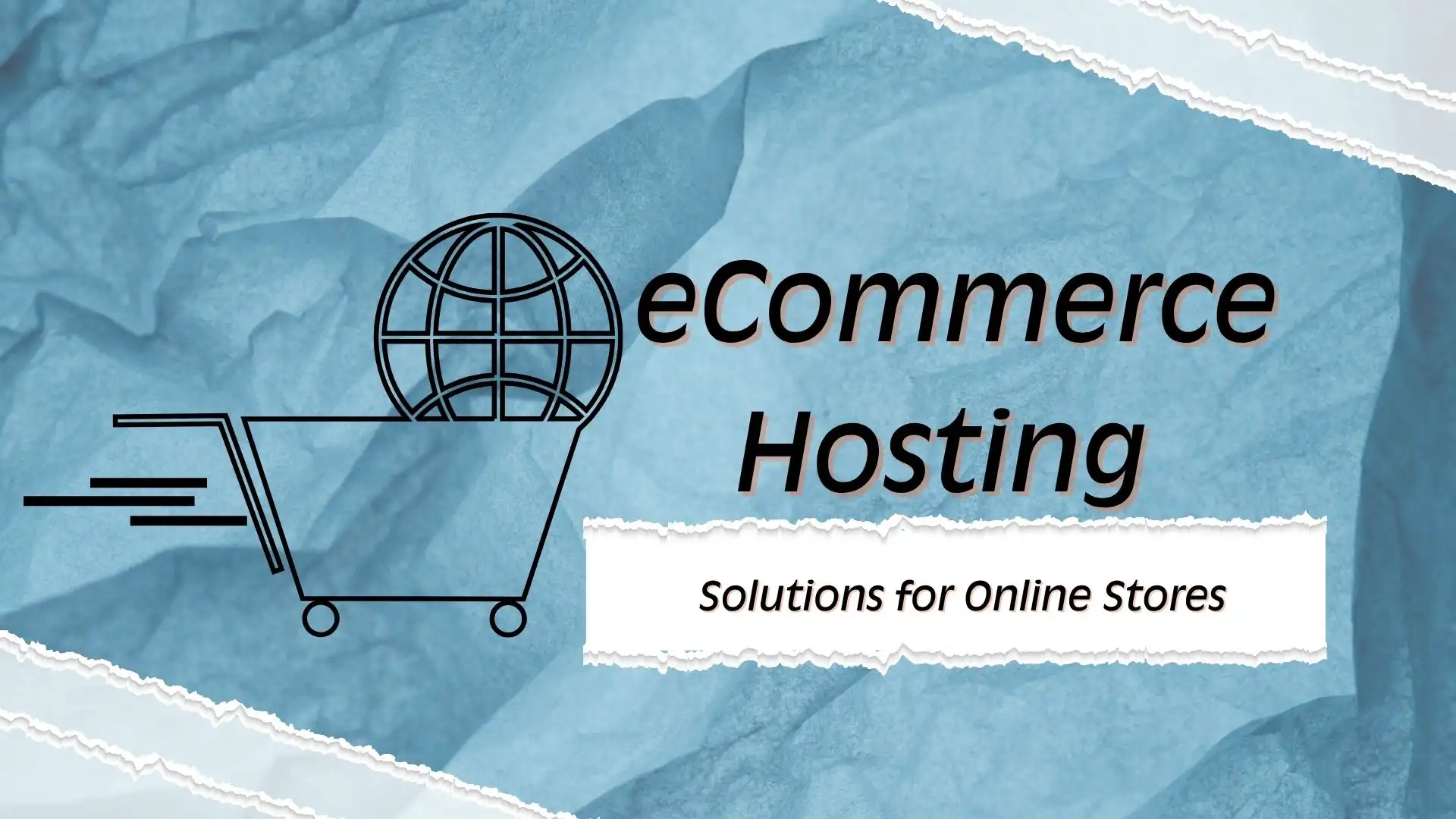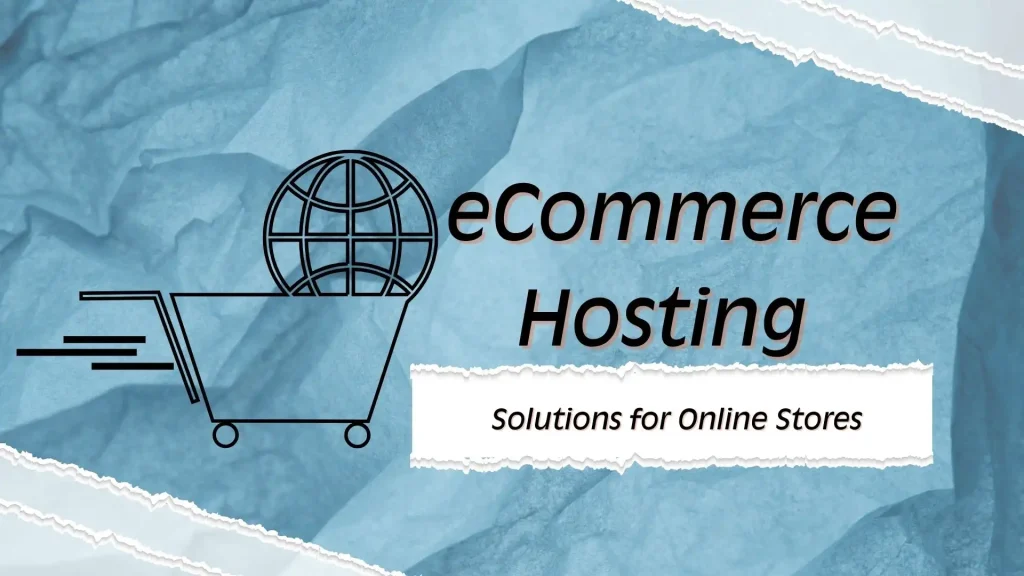
Best eCommerce Hosting Solutions for Online Stores
Find out the best eCommerce hosting solutions for online stores
Running an online store is no longer just about listing products and waiting for sales to roll in. To succeed in today’s competitive digital landscape, you need a powerful, secure, and scalable hosting environment. This is where eCommerce hosting solutions come in.
The right hosting can improve website performance, boost SEO rankings, ensure faster load times, and most importantly, create a seamless shopping experience for your customers.
In this guide by Digiwalebabu, we’ll walk you through everything you need to know about choosing the best eCommerce hosting solutions for online stores in 2025 and beyond.
Why eCommerce Hosting Matters
An online store is not like a simple blogging site. It handles product listings, shopping carts, payment gateways, customer databases, and a variety of integrations.
Without a reliable eCommerce hosting solution, your store may face issues like downtime, cart abandonment, and even security breaches.

Key reasons why hosting is important for online stores:
- Speed & Performance: A slow store means lost sales. Every second delay can reduce conversion rates.
- Security: Online stores handle sensitive customer data and payment details. A secure hosting solution ensures data protection with SSL certificates, firewalls, and malware scans.
- Scalability: As your store grows, your hosting must support higher traffic volumes without crashing.
- SEO Benefits: Search engines rank fast and secure websites higher, making good hosting critical for organic traffic.
- Customer Trust: A fast, stable, and secure website enhances trust and customer satisfaction.
Features to Look for in the Best eCommerce Hosting Solutions
Choosing the best eCommerce hosting solution is one of the most important decisions for any online store owner. The right hosting service not only ensures smooth operations but also impacts user experience, security, and long-term business growth.

When evaluating hosting providers, it’s essential to look beyond pricing and focus on the features that will keep your online store secure, scalable, and efficient.
Below are the key features you should always consider:
- Uptime Guarantee (99.9% or higher)
A reliable uptime guarantee ensures that your store is available to customers around the clock. Frequent downtime can harm both sales and brand credibility. - SSL Certificates for Secure Transactions
Security is critical in eCommerce. SSL certificates encrypt customer data, protect payment details, and build trust among buyers. - 24/7 Customer Support
Issues can arise anytime, and having access to responsive support ensures quick resolution without affecting sales. - One-Click CMS and eCommerce Platform Integrations
Hosting should support platforms like Shopify, WooCommerce, Magento, and BigCommerce with easy one-click installations for faster setup. - High Bandwidth and Storage
As your store grows, you’ll need ample bandwidth and storage to handle product images, videos, and heavy traffic without performance issues. - Automatic Backups
Regular backups safeguard your data in case of accidental loss, cyberattacks, or server failures. - DDoS Protection and Firewalls
Advanced security features such as DDoS protection and firewalls prevent malicious attacks and keep your site running smoothly. - Flexible Pricing Plans
Hosting should grow with your business. Flexible plans allow you to upgrade or downgrade resources based on traffic demands and budget.
In summary, selecting the best eCommerce hosting solution means looking for a balance of performance, security, scalability, and support. By prioritizing these features, you’ll create a reliable foundation for your online store to thrive.

Types of eCommerce Hosting Solutions
Not all hosting options are created equal, and choosing the right one can make or break your online store’s success.
The best eCommerce hosting solution depends on your store size, traffic levels, budget, and how much control you want over server management. Below are the main types of hosting solutions explained in detail:

1. Shared Hosting
Shared hosting is the most affordable choice for startups and small stores just beginning their eCommerce journey. Since you’re sharing server resources with multiple websites, the cost stays low. However, the downside is limited speed and performance during traffic spikes.
- Cheapest option for beginners.
- Limited resources as you share servers with other websites.
- Suitable for startups but not recommended for high-growth eCommerce businesses.
2. VPS Hosting (Virtual Private Server)
VPS hosting offers a middle ground between shared and dedicated hosting. Your store gets its own portion of server resources, meaning faster performance and greater reliability than shared hosting. This makes VPS a smart choice for businesses planning to scale.
- More power and flexibility compared to shared hosting.
- Provides dedicated resources for your online store.
- Ideal for growing businesses that expect moderate traffic.
3. Dedicated Hosting
Dedicated hosting gives you full control over a physical server. Since no resources are shared, your eCommerce store benefits from top-tier speed, stability, and security. While it is more expensive, it’s the best option for established stores with high traffic volumes.
- Full control over your server and resources.
- Best for high-traffic eCommerce sites.
- Expensive but extremely reliable and secure.

4. Cloud Hosting
Cloud hosting uses multiple servers to balance traffic loads, ensuring your site never goes down even if one server fails. It is highly scalable and works on a pay-as-you-go model, making it perfect for businesses with seasonal sales or unpredictable traffic.
- Scalable and flexible hosting with adjustable resources.
- Works well for fluctuating traffic demands.
- Delivers high uptime, speed, and performance.
5. Managed eCommerce Hosting
In managed hosting, the provider handles technical aspects like software updates, backups, and security monitoring. This frees you to focus on marketing, sales, and growth without worrying about server management. It’s an excellent option for non-technical store owners.
- Hosting provider takes care of all technical tasks.
- Includes automatic updates, backups, and strong security.
- Great for businesses without an in-house IT team.
Best eCommerce Hosting Solutions for Online Stores in 2025
Now that you understand the importance of hosting and its types, let’s dive into the best eCommerce hosting solutions for your online store.
1. Bluehost – Best for WooCommerce Stores
Bluehost is a popular name in the hosting industry and comes highly recommended for WooCommerce users.
Why choose Bluehost?
- One-click WooCommerce installation.
- Free SSL and domain for the first year.
- Affordable pricing for startups.
- 24/7 support and scalable plans.
Best for: Beginners and small businesses using WordPress/WooCommerce.
2. SiteGround – Reliable and Fast eCommerce Hosting
SiteGround offers exceptional customer support and high-speed servers.
Key Features:
- Free daily backups.
- Advanced caching for faster page loads.
- Free SSL and CDN.
- Staging tools for testing before going live.
Best for: Stores that prioritize speed and customer service.
3. HostGator – Affordable and Flexible Plans
HostGator is known for its budget-friendly plans and reliable service.
Why HostGator is great for eCommerce:
- Unlimited storage and bandwidth.
- Free site migration.
- One-click installs for Magento, WooCommerce, and more.
- 99.9% uptime guarantee.
Best for: Entrepreneurs looking for cost-effective eCommerce hosting solutions.
4. A2 Hosting – Fast and Secure Online Store Hosting
A2 Hosting is famous for its blazing-fast servers and developer-friendly environment.
Features:
- Turbo servers for 20x faster loading.
- Free SSL and HackScan protection.
- 99.9% uptime.
- One-click integration with eCommerce platforms.
Best for: Performance-driven eCommerce stores.

5. InMotion Hosting – Great for Growing Businesses
InMotion Hosting provides robust features and excellent scalability.
Why InMotion Hosting stands out:
- Free domain and SSL.
- Powerful SSD storage.
- Automatic backups and DDoS protection.
- Supports Magento, WooCommerce, and PrestaShop.
Best for: Small to medium businesses expecting rapid growth.
6. Cloudways – Flexible Cloud eCommerce Hosting
Cloudways offers managed cloud hosting with providers like AWS, Google Cloud, and DigitalOcean.
Key Benefits:
- Pay-as-you-go pricing.
- 24/7 support and monitoring.
- Free SSL and automatic backups.
- Multiple server options.
Best for: Businesses looking for scalable eCommerce hosting solutions with flexibility.
7. Shopify Hosting – Best for All-in-One Solution
Shopify is not just an eCommerce platform but also provides secure hosting.
Advantages:
- Fully hosted solution, no technical hassle.
- Built-in payment gateway.
- High-level security and speed.
- 24/7 customer support.
Best for: Entrepreneurs who want an all-in-one solution without managing servers.
8. BigCommerce Hosting – Enterprise-Level Online Stores
BigCommerce is perfect for medium to large enterprises that want a scalable hosting environment.
Why BigCommerce works well:
- No transaction fees.
- Robust SEO tools.
- Multi-channel selling options.
- Strong security and uptime.
Best for: Enterprises and established businesses.
Comparison Table: Best eCommerce Hosting Solutions
| Hosting Provider | Best For | Key Features | Price Range |
| Bluehost | Beginners | WooCommerce integration, Free SSL | Budget-friendly |
| SiteGround | Speed & Support | Free backups, Advanced caching | Mid-range |
| HostGator | Affordable plans | Unlimited storage, One-click installs | Budget |
| A2 Hosting | Speed & Security | Turbo servers, HackScan protection | Mid-range |
| InMotion Hosting | Growing businesses | SSD storage, Free domain | Mid to High |
| Cloudways | Flexibility | Cloud-based hosting, Pay-as-you-go | Variable |
| Shopify | All-in-one | Fully hosted, Built-in payments | Subscription |
| BigCommerce | Enterprises | SEO tools, No transaction fees | Subscription |
Tips to Choose the Right eCommerce Hosting Solution
Selecting the best eCommerce hosting solution is not just about picking the cheapest plan—it’s about finding a reliable platform that supports your store’s long-term success. With so many hosting providers available, it’s important to evaluate your unique business needs before making a decision. The right hosting service should deliver speed, security, scalability, and support to ensure a smooth shopping experience for your customers.

Here are some practical tips to help you choose the right eCommerce hosting solution:
- Understand Your Store’s Needs
Every online store is different. Consider factors like traffic volume, number of products, website functionality, and integrations with platforms such as WooCommerce, Magento, or Shopify. This helps you avoid overpaying for features you don’t need while ensuring your hosting supports your growth. - Check Security Features
Security is non-negotiable in eCommerce. Look for hosting that includes SSL certificates, malware protection, firewalls, and regular backups to keep customer data and transactions safe. - Consider Scalability
As your business grows, your hosting must be able to handle increasing traffic and sales. Scalable hosting solutions allow you to upgrade resources easily without disrupting your store. - Prioritize Speed and Uptime
Fast-loading pages and high uptime are essential for conversions and SEO. A hosting provider that guarantees 99.9% uptime and optimized server performance will ensure your store runs smoothly. - Look at Support Options
Technical issues can arise at any time, so 24/7 customer support via live chat, email, or phone is a must. Reliable support ensures downtime or technical errors don’t cost you valuable sales.

Frequently Asked Questions About eCommerce Hosting Solutions
What is eCommerce hosting?
eCommerce hosting is a web hosting service optimized for online stores, offering features like SSL certificates, shopping cart support, and secure payment processing.
Why is eCommerce hosting important?
It ensures your online store runs smoothly, securely, and can handle customer transactions without downtime or data breaches.
Which hosting is best for small eCommerce stores?
Bluehost and HostGator are excellent for startups due to affordability and ease of setup.
Which hosting is best for enterprise-level eCommerce?
BigCommerce and Cloudways are perfect for large-scale businesses that need scalability and reliability.
Do I need managed hosting for my online store?
If you don’t have technical expertise, managed hosting is recommended as it takes care of security, updates, and backups.
Is cloud hosting good for eCommerce?
Yes, cloud hosting is scalable and ensures high uptime, making it ideal for growing online stores.
What should I prioritize in eCommerce hosting?
Speed, security, uptime, and scalability should be your top priorities.
Does hosting affect SEO for online stores?
Absolutely. Faster load times and higher uptime contribute to better search engine rankings.
Can I switch hosting providers later?
Yes, but migration can be complex. Choose a provider that offers free migration support.
Which is the overall best eCommerce hosting solution?
It depends on your needs. For beginners, Bluehost is ideal, while enterprises may benefit more from BigCommerce or Cloudways.
Final Thoughts
Choosing the best eCommerce hosting solutions for online stores is a critical decision that directly impacts your business growth, customer trust, and revenue. From budget-friendly options like HostGator to enterprise-level solutions like BigCommerce, there’s a hosting plan for every type of online business.
At Digiwalebabu, we recommend analyzing your store’s current and future needs before committing to a plan. Prioritize speed, security, and scalability, and you’ll be well on your way to running a successful eCommerce business.
